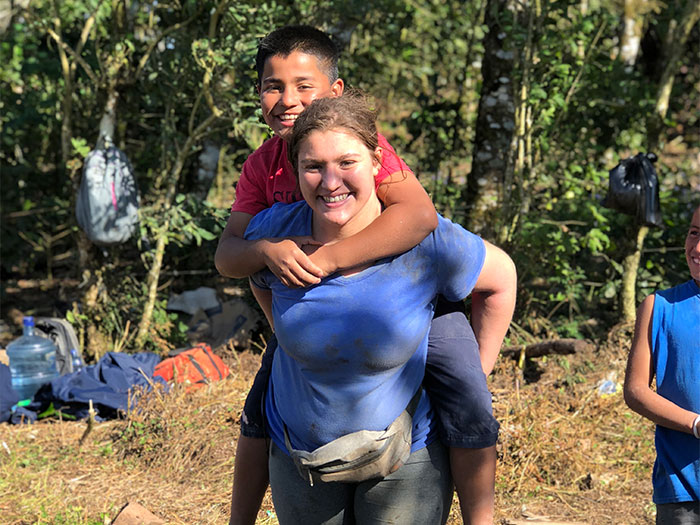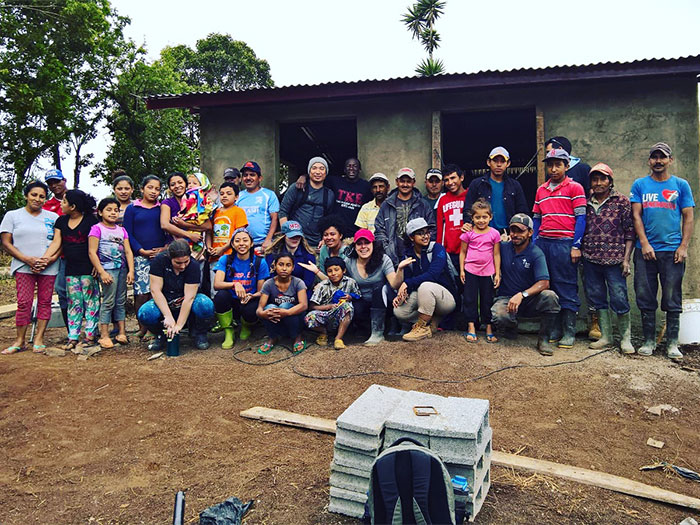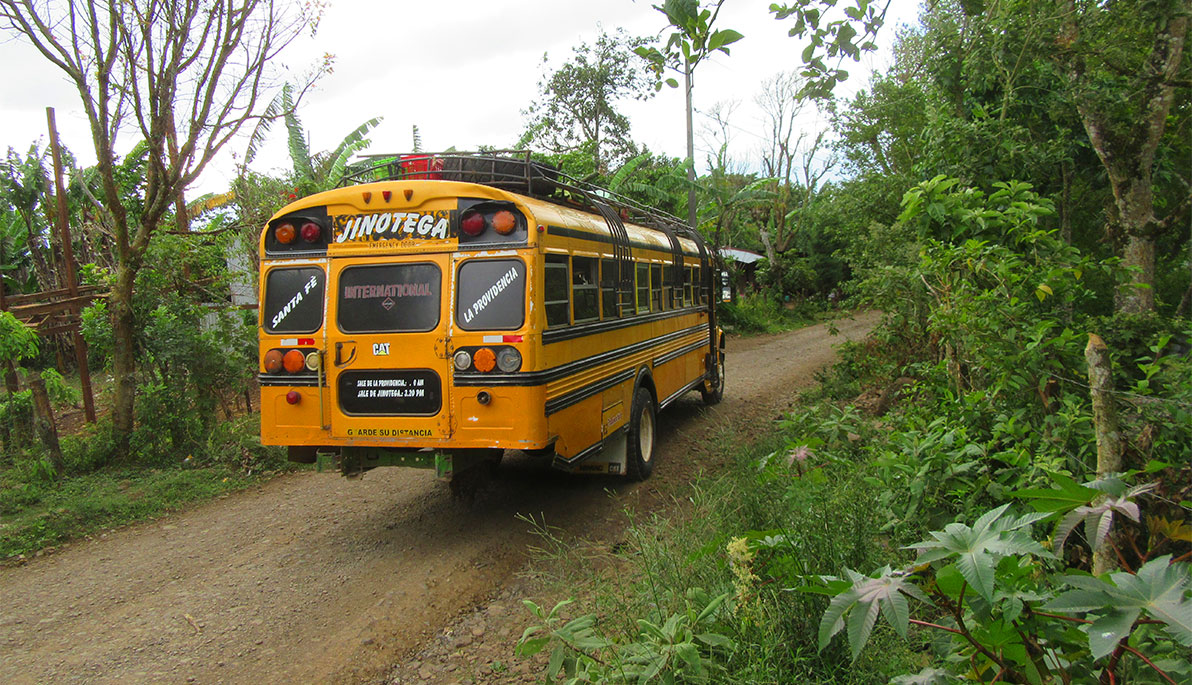News
Lauren Slovensky on the Trip That Changed Her Life
April 5, 2018
NYIT student Lauren Slovensky, a junior majoring in urban administration, went to Jinotega, Nicaragua, on 2018’s Alternative Spring Break to help build a home for a family in need. What she learned was even more eye-opening than she expected. She shared her reflections of the trip with The Box.
Over spring break, I experienced a life-changing trip to Jinotega, Nicaragua, which I took with nine other NYIT students. I met a community that is happy living with what they have, which is very limited and scarce. Seeing them made me realize that you do not need modern technology to be happy. In fact, in many ways, I thought the people of Jinotega were happier than I would ever be with the abundant, materialistic things accessible to me. When I compare Americans to the people living in Jinotega, Americans do not seem as happy as they do. They have much less and yet their hearts are full of happiness and joy.
During our stay, we visited a school which was built by Bridges to Community, the not-for-profit organization NYIT partnered with to coordinate this year’s Alternative Spring Break. We were immediately greeted with gratitude. To show their appreciation, the students and teachers prepared a dance for us. We also met a girl, about a year old, who seemed like she had all the joy in the world. She was wearing a pink dress and ran around without a worry. But after learning from Bridges to Community leaders and observing the struggles they face day in and day out, we discovered she would have many worries later in her life. Such as, whether or not she will have a home or how she is going to survive off the little food she can afford.

Lauren Slovensky poses with a child from Jinotega, Nicaragua.
After visiting the school, it was time to begin building the home for the family of three. We were taken to their current house and saw that it had holes in the walls and roof that were almost the size of a window. Rain leaked through, and there was no security to prevent people from breaking in. The parents and their 18-month-old son were so grateful that we would be doing this for them. We also had the opportunity to spend time with them and learn about their culture and daily lives. One thing that struck me was when we asked them what they do when it gets cold. They told us they do nothing because they do not have the resources we have, such as warm coats or blankets. It was amazing to learn that even though we live so far apart and come from different social economic statuses, we could relate on a certain level to their experiences.
As much as building the house helped them, this experience helped me in greater ways. As my classmates and I mixed cement, put down cinder blocks, and interacted with the people of Jinotega, we built character and found our compassion.
The people of Jinotega taught us that even with nothing, if you work hard, there will be hope. No matter what the masons and community members that built the home with us did, they did it with a smile. The relentless way they mixed the cement and carried out wheelbarrows of sand seemed effortless. When we tried, we found ourselves struggling. It was remarkable for me to realize that we do not have the same hard work ethic they have. And I am convinced we never will.

NYIT students, members of Bridges to Community, and residents of Jinotega pose in front of the house they built.
This work ethic brought meaning to the saying: “Live as if you were to die tomorrow; learn as if you were going to live forever.” The people of Jinotega do not worry about their next meal, but they do worry about what or if they are going to learn something new. While painting another house, I met a boy named Emiliano who was helping us paint. When we took his brush away, he quickly became sad. He wanted to continue painting because for him, hard work is his way out of the poverty he lives in. When we asked him, “Would you rather work or go to school?” he responded without hesitation: “School.” School was going to teach him things work will never teach him.
What I learned is that no matter what we do, we should keep laughing, smiling, and lending hands, because then we can make the world a better place.




